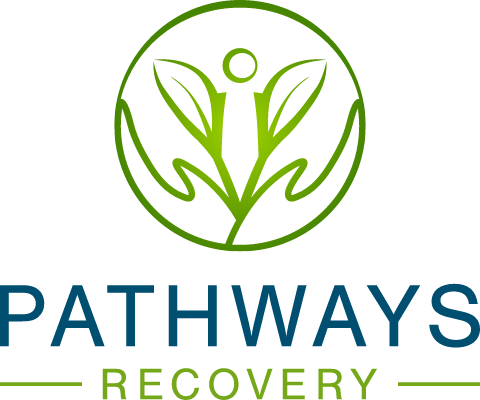Opiate Detox
Evidence-Based Opiate Detox Sacramento
It can be painful and tiring to watch someone withdraw from a substance like opiates. It is even more exhausting being the one going through withdrawal.
For years and years, the only option for getting rid of the substances in our bodies was to just power through the symptoms while those around us offered love and support from a distance. This led to extremely unpleasant symptoms that would last at least three to seven.
It is with pleasure that we can say that times have changed when it comes to detox and detox programs.
What Is Opiate Detox?
The Oxford dictionary defines detox as a process or period of time in which one abstains from or rids the body of toxic or unhealthy substances; detoxification. This definition is very clean and clinical when the actual process is anything but.
Detoxification, more generally, is the removal of toxins, like harmful substances (opioids in this case). Eliminating these from the body should only be done under medical supervision and compassionate care. Also, remember that not everything known as a toxin will be removed from a medical detox program since these are focused on withdrawal from the often harmful substances used when someone is struggling with addiction.
The process of removing substances from the body is a long and serious business because your body has built up a physiological need for this substance. Common opioids that require detox are:
- Vicodin
- Percocet
- Oxycontin
- Oxycodone
- Heroin
- Fentanyl
- Morphine

Trying To Quit Cold Turkey
Long-term substance use, or long term use of opiates, can leave a person shaking within moments of waking if they haven’t taken any in some time. These symptoms are known as the DTs or delirium tremens.
It’s evident from these symptoms that one reason uniterrupted use continues for years is that the process of trying to quit is painful and scary. Without proper supervision and guidance, things could quickly spiral out of control.
It is important to remember that even if they aren’t life-threatening symptoms, the withdrawal process is known to be painful, scary and it can make it harder to want to stop using drugs or to stop drinking.
Safety is the top priority of medical detox, which is why we are focused on the benefits of having qualified, compassionate professionals that can handle the withdrawal process with ease. The discomfort and pain that can be associated with opiate withdrawal make it vital that those in detox are a part of a program that combines both their emotional and medical needs.
Why Choose An Opiate Detox Program?
The process of detoxing is not pretty. In some cases it can even put your life at risk and take what feels like forever to pass. That is why professionals, like those at Pathways Sacramento, recommend that you detox in a supervised facility with licensed medical professionals who have experience and expertise treating people at this point in recovery.
The result of a successful detox is that the person who was in the program is no longer at risk for complications related to their substance use. The cravings may still be there, but that is why detox is usually the first step in the continuum of care.
Timeline for Opiate Detoxification
As soon as the body senses there are no opiates present, withdrawal symptoms will begin to show up. Each substance has different symptoms, and it depends on how long the drugs have been affecting the brain and body of the person.
Numerous factors influence the complicated process of withdrawal:
- Type of substance that is used
- Length of addition
- The method of delivery (injecting, smoking, swallowing, or snorting)
- Genetics
- Other mental health disorders and treatments
If someone struggles with a substance use disorder for many years or has additional medical conditions, they may have a far more intense withdrawal. A medical study by an affiliate of Harvard Medical School, Cambridge Health Alliance, did research that allowed them to create a solid timeline of withdrawal from common substances. One of these substances is opiates.
Prescribed opiates withdrawal starts within 8-12 hours after the last consumption or use of the substance. Peak, or the most dramatic or intense, symptoms often are seen at 12-48 hours and can in some cases last up to 10 days.
When comparing this to other types of prescription medications, this is similar to a lot of other medications but in general, withdrawal from opioids can last longer. For other medicines, withdrawal starts within one to four days after last use and symptoms usually subside in three to five days, however some medications are known to cause severe effects during withdrawal.
Detox Symptoms From Opiate Use
- Nausea, Vomiting & Diarrhea
- Anxiety
- Severe Whole Body Pain
- Tremors
- Sweating
- Depression
- Change in Blood Pressure
- Hallucinations
- Incontinence
- Seizures
- Psychosis
- Suicidality

How Do You Know Detoxification Is Right For Someone?
It is important to consider detoxification for opioids with an opiate detox program when you first recognize the problem in yourself or a loved one. The reason it becomes so important is that usually it is the first step into lifelong recovery. Like we said before, it is usually the first piece of a spectrum of different care types that you or your loved one will go through during addiction treatment and recovery.
We also know that it can be important for the overall health, or holistic health, of the person facing addiction. This is because withdrawal from opioids can be an uncertain, sporadic, stressful, and overall trying time. But, did you know that detox, whether it is from opiates, alcohol or another substance, is often considered necessary care for those with a substance use disorder by insurance companies?
This means that care within an opiate detox program is prioritized by medical professionals and insurance companies. It is also important for behavioral and mental health as well because stopping cold turkey can have some seriously complicated side effects for both mental and physical health. When we become addicted to a substance, we end up finding our thought processes and feelings somewhat altered. Not to mention that addiction is oftentimes found alongside other co-occurring disorders such as anxiety, depression, OCD, and more.
This means that starting a detox within an opiate detox program as the first step can not only ease the burden from a financial standpoint but it can give the care team a really solid basis of the mental health of the person struggling with addiction. This is also why a full continuum of care is so critical when seeking addiction treatment services.
What To Expect When Detoxing From Opiate Abuse At Pathways
Pathways Recovery drug rehab center in Sacramento offers several options when it comes to safely withdrawing from any type of opiate drug including heroin, prescription pain medications, methadone, and Bupenorphine.
We discuss your history and make recommendations as to what we feel will be the most successful and comfortable method for you. We also want to help you meet your recovery goals and develop a recovery plan that will assist you in getting your life back on track. We do not take a cookie cutter approach. Instead, we take the time to assess each person individually. At Pathways Recovery in Sacramento, we understand that each person’s history is different. There are many reasons that people begin to use heroin or prescription medications. We want to get to know you and develop a customized treatment plan that is specific to your needs.
We are a medically-supervised drug detox center and can assist those with complicated addiction history and co-occurring mental health issues. Our medical team includes a psychiatrist who is very experienced with addiction and co-occurring disorders. Our medical team also includes a registered nurse and very experienced 24 hour staff of addiction counselors who have helped hundreds of people through the opiate withdrawal process.
One option that we offer for opiate detoxification is Medically-Assisted Treatment (MAT).

Why Is Medication-Assisted Treatment Preferred?
MAT is recommended to make sure you remain comfortable while under detox care. Medications that can alleviate the symptoms of withdrawal along with behavioral therapy and holistic treatments are most effective in the handling of opioid use disorders (OUD).
MAT helps to stabilize the brain’s chemistry and body functions. It shuts off the euphoric effects of opioids and helps the body carefully move away from feelings of cravings.
It can be likened to a broken bone. A person can hold a limited conversation with a broken bone, but this is not the time to be making life-changing decisions. Until the bone is healed and the pain addressed, your attention is completely focused on just that.
People struggling with addiction often make choices in what seems like a chaotic and unhealthy way. So, real life is never addressed in healthy ways and connections with friends and family fall by the wayside.
What Medications Are Used in MAT During Opioid Detox?
Suboxone or Subutex is a medication that contains buprenorphine which helps to greatly ease the withdrawal symptoms and lessens the overwhelming cravings and post acute withdrawal symptoms that generally persist for several weeks to months after drug withdrawal. It’s important that this medication is utilized properly and with the supervision and skill of an experienced doctor and support team who know how to use this medication. Many people prefer to detox using this method as it greatly lessens the discomfort associated with opiate withdrawal.
Some people prefer or need to be completely medication-free once they finish the opiate withdrawal process. Pathways Recovery in Sacramento also offers other methods of opiate withdrawal that include non Subutex/Suboxone methods if that is the preferred method–and it is deemed safe by the medical team. The details of this process can be discussed with our intake and assessment staff.
Holistic Options For Opiate Detoxification
Holistic activities at Pathways Recovery Sacramento range from meditation, to yoga, and group activities, where the brain is encouraged to focus on whole-being health.
Holistic care seeks to restore a patient to a state of complete health rather than focusing only on symptoms.
Our drug rehab center is a residential home that is quiet and comfortable. Most people cannot safely and effectively go through pain medication or heroin detox without some type of professional help. The symptoms of opiate withdrawal are generally very intense and make it nearly impossible to do alone. It can be very scary and difficult for loved ones and the person addicted to deal with the sickness that comes with opiate withdrawal.
The process of opiate withdrawal takes 7-10 days for the drugs to exit the body. During the stay in our facility each person is treated with care and concern and given support. We prepare all of the meals, juices and snacks that are provided in our facility. Recovery-based groups and individual counseling are provided during the 7-10 days in our facility.
Each person is also placed on nutritional supplements designed especially for drug withdrawal and addiction recovery. The use of heroin or prescription medication use can cause significant damage to the brain and body and it will take time for the healing process to happen.
Finding support after detoxing can make a huge difference in recovery. This level of continual support can increase the chance of long-term recovery for you or a loved one, and help to sustain recovery long term.
We also offer support through a FREE weekly Wednesday evening family education group.
Opiate Withdrawal FAQs
How long does opiate detox take?
Opiate detox timelines can vary. This is dependent on the individual person, the length of time the person was both addicted and using the substance, as well as the amount of substance used regularly. In general, the initial phase of detoxing from an opioid addiction will be three to seven days. During this time you may experience the initial withdrawal symptoms like headaches, sweating and more. Another 10 days after this will be when the final phases of detox should be completed. After this, timelines vary based on the other treatment options that are considered after the opiate detox program.
What to expect after opiate detox?
After time in an opiate detox program, most people can expect to move into residential care. During the stay at a residential or inpatient care setting, you can expect to also be a part of many types of treatments and therapies. These include holistic treatments, mental health treatments, group therapies, and more. Some facilities, like Pathways Recovery in Sacramento, will also show you life skills such as having a healthy nutritional diet and how to communicate better with those around you.
Let Pathways Provide You or Your Loved Ones
With an Effective Opioid Withdrawal Today.
We are a Sacramento-based drug and alcohol detox center, drug and alcohol treatment center, and outpatient rehab center.
We have program locations in California that focus on serving areas near Sacramento like Roseville, Granite Bay, El Dorado Hills, Folsom, Loomis, Rocklin, Lincoln, Auburn, Grass Valley, Citrus Heights, Elk Grove and Davis. To find out more about how we can help call our drug and alcohol addiction center anytime 24/7 at (916) 735-8377 for a confidential consultation.
We can verify insurance coverage and benefit information in about an hour and can get the process of admission to our addiction treatment center started quickly. When you need an addiction treatment center who provides high quality care quickly give us a call. It would be our pleasure to assist you.

